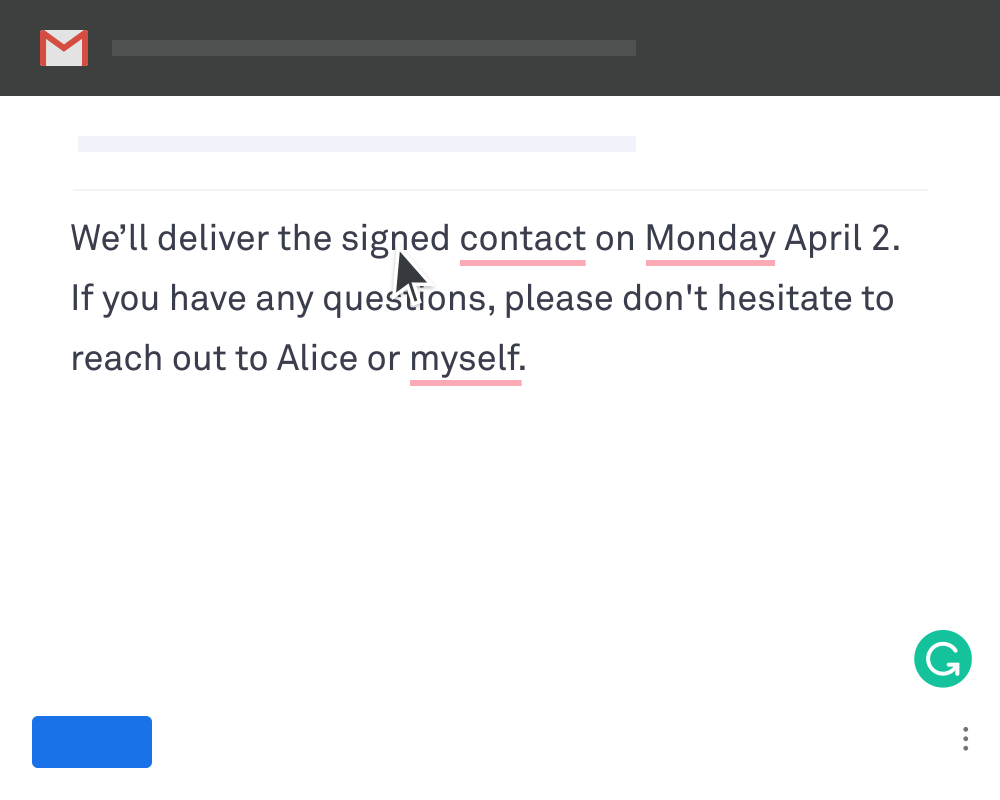
This fall, it will launch inside the platform of its first customer postpivot, Chicago-based Otus, which bills itself as an “all-in-one K-12 learning management, assessment and data system.” Kamath says the old model provided “slightly broken experiences … The demand became for those platforms to pull in our intelligence and provide functionality for their features.” JoeZoo is moving from a model that relies on teachers, students and schools as customers to focus on selling its technologies as a service to platforms, which can include them in the classroom experience more seamlessly.
#Grammerly mail client for mac free#
The company’s free apps gave it access to vast amounts of written coursework, which it used to create and train new language models and eventually pivot toward serving learning platforms, which happened earlier this year.

It speeds up the grading process for teachers and helps students get their results more quickly. For instance, AI is used to identify areas for improvement in a student’s writing, including grammar, structure and vocabulary. In 2016, after two years of “deeply researching” the problem, they launched the JoeZoo artificial intelligence (AI) powered assessment app, which provides student feedback and grading as an add-on to Google applications such as Docs. there must be a role for technology to play.” “Teachers spend an inordinate amount of time each week and giving up weekends on grading activities. Mascarenhas, chief executive officer of the Toronto-based company, recalls of that time in 2014.
“When they had a chance to show us how they did it, we were stunned,” Mr. The pair, who aren’t teachers, didn’t understand just how challenging and time-consuming it was grading students’ work. It was after their teacher friends started regularly dropping out of social commitments that entrepreneurs Rakesh Kamath and Carl Mascarenhas got the idea for their education technology company JoeZoo Inc. JoeZoo founders Rakesh Kamath, left, and Carl Mascarenhas in Toronto, on Sept.


 0 kommentar(er)
0 kommentar(er)
